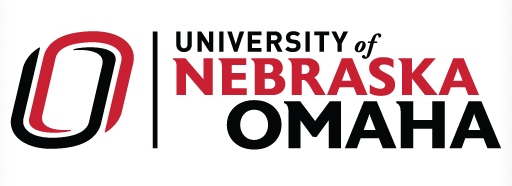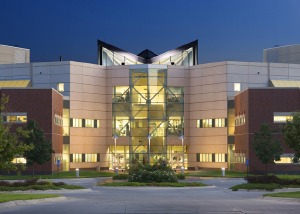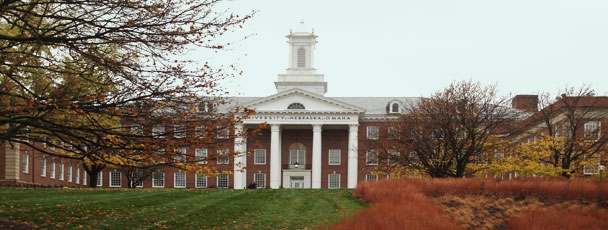- Study in AustraliaAustralian Universities/CollegesPrograms by faculty AusAustralian VisasLife in Australia
- Study In New ZealandNew Zealand UniversitiesPrograms by Faculty NZNew Zealand VisasLife in New Zealand
- Study in CanadaUniversities/Colleges in CANADAPrograms by faculty CanadaCanadian VisasLife in Canada
Arts & Science at University of Nebraska at Omaha
| Arts & Science at The University of Nebraska at Omaha | |||
| Arts & Science at The University of Nebraska Omaha College of Arts and Sciences College of Arts and Sciences is committed to teaching excellence, cutting-edge research and creative activity in all disciplines, and service in the UNO and Omaha communities. | | ||
|
| |||
| | |||
| Biology Department at the University of Nebraska at Omaha. We are a diverse, unified department with teaching and research spanning the breadth of biology; from ecosystems to molecular structure, from evolution to cell biology, from systems biology to bioinformatics. Exciting advances are occurring in all areas of biology; the field has never been more interdisciplinary; opportunities abound. We invite you to join us to share in these exciting times. Academic departments
Department of English The Department of English at UNO works to increase the general literacy and cultural awareness of UNO students and also the citizens of Omaha and its immediate surroundings. Faculty involvement in the Service Learning Academy, in area public high schools, in city- and state-wide reading events, in public readings and lectures, and in area literary competitions is considerable. Across all of its efforts in teaching, research and creative activity, and service, the UNO Department of English is a vital component of the university’s strategic mission: to make students our focus, to promote academic excellence, and to engage with the community. | |||
| Department of Foreign Languages Languages represent the voices of your friends, your neighbors, and your colleagues. They document life, literature, governments, history, economics, and cultures, and they allow you to become a knowledgeable and sophisticated citizen of the world as well as a successful business person or entrepreneur. Courses in the Department of Foreign Languages and Literature aim to improve students’ linguistic and cultural competencies as they pursue their language studies at both the undergraduate and graduate levels. Award-winning faculty, small class sizes, technology-enhanced curricula, community engagement, and study abroad opportunities characterize our language programs. A degree in foreign languages prepares you for a myriad of careers from those in translation and interpretation to business. The Department of Geography / Geology at the University of Nebraska at Omaha offers undergraduate degrees in geography, geology and environmental studies, a masters degree in geography, and a certificate in geographic information science.
History DepartmentHistory lets you be a time-traveler, exploring the past just as you would another country. You might march with Hannibal against Rome, watch your great-grandmother disembark at Ellis Island, overthrow slavery in Haiti, or change science forever by sailing on the Beagle with Charles Darwin. And like any traveler, you’ll come home with great stories and a new way of looking at your world. In history classes, we explore what changed, why it changed, and why it matters to us now. And we learn the craft of detective work called historical research. History is a practical major. One recent study (Academically Adrift, 2010) found that students in liberal arts fields like history gained more of the skills valued by employers than do students in business, education, or communication topics. The University of Nebraska at Omaha offers an undergraduate major, minor, and a master's degree in history, as well as options for history concentrations in general studies and education. History students can also complete internships with several local employers, and our eligible students can join the national honorary organization, Phi Alpha Theta. Our local chapter sponsors activities throughout the year.
Latin American Studies A major in Latino/Latin American Studies and a minor in Chicano/Latino Studies offer transnational, interdisciplinary, and comparative programs of study of the social, economic, political, and cultural forces shaping the experience of Latino and Latin American societies in the United States and throughout the Americas. Coursework in the Latino/Latin American Studies major prepares undergraduate students for a wide variety of career options. A major in Latino/Latin American Studies (LLS) or a minor in Chicano/Latino Studies (CLS) may be particularly useful to those students planning a career in which Latino and Latin American issues are central: public service, education, law, health, counseling, and business are but a few examples. Moreover, the major and minor serve more than just a specific Latino constituency, as the impact of demographic and social trends are reflected in the lives of non-Latinos. We encourage students to declare Latino/Latin American Studies as a double major as well.
Major in Latino/Latin American Studies A major in Latino/Latin American Studies requires 30 credit hours. Six of those consist of hours earned through the completion of LLS 1000 and LLS 1010 or 1020. Three hours are earned through the completion of Senior Project (LLS 4990) or by a course pre-approved by the OLLAS director. This course also fulfills the college’s third writing course requirement. The remaining 21 hours are earned through the completion of approved Latino/Latin American Studies courses and a Research Methods course (see the following list). The following Research Methods courses also fulfill the college’s quantitative literacy requirement: CJUS 2510, SOC 2130, SOC 2510, PSCI 2000, PSCI 3000, PSYC 3130, and PSYC 3140 (or other courses approved by the academic adviser or director). A maximum of nine hours taken within a single department may be counted toward the major. All students must complete 16 hours of Spanish (or equivalent) to fulfill the college language requirement for the B.A. degree. | |||
| Mathematics Department Mathematics (including Statistics) is one of the largest departments at UNO, both in number of faculty and in diversity of mission. Intermediate Algebra, UNO’s General Education Mathematics requirement, is taken by about 1000 students per year. College Algebra and Calculus I also have very large enrollments. There are many upper level courses serving both the needs of majors in other areas as well as math majors. We have a wide variety of student activities all of which are described in great detail on this website. We are attempting to make this website as comprehensive and useful as possible. Please let us know if you have any ideas about making it even better and more informative.
Native American StudiesNative American Studies (NAS) was established as an academic program at the University of Nebraska at Omaha in 1992. The program is interdisciplinary, combining the efforts of faculty throughout the university. Native American Studies offers students an opportunity to learn about Native American Cultures - literature, history, arts, values, lifeways, spirituality, and social and political institutions. The program also has a long-standing tradition of activism on contemporary issues. Native American Studies introduces students to differences in the perspectives of European-American and Native American cultures on a wide variety of topics, including issues relating to communication across the cultural boundaries of both past and present eras. Students gain an awareness of humanistic knowledge within the framework of North American human experience. Some students are of Native American descent, but many are not. Classes often are taken by students from a number of fields to satisfy cultural-diversity requirements. Students also include NAMS courses in programs leading to degrees in medicine, law, education, public administration, social work, and criminal justice. Native American Studies graduates have formed an association to assist in the promotion of Native American Studies. Contact Dr. Beth Ritter for information about Native American Studies Alumni Association.
Neuroscience The study of the biological basis of behavior is one of the most rapidly growing areas of life sciences, reflecting the importance of the fundamental and applied interest in how neurons work on an individual basis, and how collections of neurons mediate behavior and cognition. The College of Arts and Sciences at UNO has established the first undergraduate neuroscience degree program in the Nebraska system to educate students bound for graduate programs in neuroscience as well as various careers in the health or health-related fields. Students working toward completion of this degree will benefit from the expertise of existing faculty in the UNO departments of Biology and Psychology along one of two tracks: Molecular and Cellular Neuroscience or Integrative Behavioral Science. An undergraduate major in neuroscience will place students in the position of moving into one of multiple career trajectories upon completion of the degree. First, graduates of the program will be in an excellent position to immediately and successfully be recruited by one of the more than 200 graduate programs in neuroscience and related areas, and pursue advanced degrees. These opportunities include working with faculty at UNMC’s growing training programs and opportunities. The newly established Department of Pharmacology and Experimental Neuroscience at UNMC brings together experts in neuropharmacology with those with expertise in neurodegenerative diseases, and new and exciting graduate programs are likely to emerge from this new department. Neuroscience and related disciplines constitute among the best funded and active programs at UNMC. The Center for Neurovirology and Neurodegenerative Disorders (CNND) and the associated Neuroscience Research Training Program (NRTP) at UNMC constitute an important employment and training outlet for graduates of an undergraduate neuroscience major. Second, graduates from either of the proposed neuroscience tracks would have most or all of the required courses for admission to medical schools, veterinary programs, and a host of other health-related professional programs. Third, graduates of the neuroscience major will possess intellectual and methodological skill-sets that will make them highly attractive for laboratory technicians and assistants in local, regional, and national university and medical school laboratories. Fourth, the growing emphasis on pharmaceutical agents that affect psychological function is driving employment in corporate pharmaceutical firms, for which graduates of the neuroscience major would be competitive. Finally, students will emerge from the major with the ability to think across disciplines, to formulate questions and seek answers, to interpret data and draw conclusions, and to effectively communicate the outcome of these processes to a target audience. This suite of skills will make neuroscience majors eligible for a variety of career opportunities that are outside of the discipline of neuroscience.
Department of Philosophy The study of philosophy is the attempt to understand the world in as unified and general a way as possible. Philosophers want to know what there is, how it works, how we know, how we should live, what is good, what is immoral, whether or not there is a God, and many, many other things as well--and, especially, how all these things fit together. One reason the study of philosophy is useful is that the methodology of philosophy--careful reasoning, precise application of logic, and thorough analysis of concepts--is applicable to any subject matter whatsoever. Philosophy pairs easily as a double major with many other disciplines. A minor in philosophy provides essential skills in logical reasoning and intensive writing that can enhance both your resume and your academic preparation. Some especially complementary majors :
| |||
| Department of Physics Physics, the study of matter and energy, is at the root of every field of science and underlies all natural phenomena. Physics ranges from the study of the atom's tiny world to the colors of the stars in the far depths of our universe. Understanding motion, force, energy, sound, electricity, magnetism and light, as well as the atom and the nucleus, all challenge the student in this fundamental science. The skills you gain with a degree in physics are valuable in so many jobs. These skills include: conceptual reasoning, critical thinking, and problem solving. Teaching Research
Deprtment of Political Science A major in Political Science prepares students for a rich and rewarding career. Political science graduates are well equipped for professions both at home and abroad in the fields of law, business, criminal justice, education, journalism, and government service at the local, state, and federal levels. In fact, many political science graduates have reached the pinnacle of their respective professions. The political science major provides students with the tools to become effective and politically active citizens and leaders. Students learn to process the endless flow of ideas, rhetoric and data that are an inescapable feature of the information age. By polishing valuable skills in analysis, communication, research, and writing, political science classes challenge students to think independently, with an informed awareness of current affairs and tolerance for other points of view. With these skills political science graduates are always among the leaders in community organizations and electoral politics. Political science is among the most popular liberal arts majors and is highly suitable for combination as a double major with other disciplines such as business, economics, foreign languages, history, international studies, philosophy, psychology, and sociology, among others.
Department of Psychology The Department of Psychology at UNO offers degrees at the undergraduate (BA/BS) and graduate (MA/MS/EdS/PhD) levels in diverse areas of psychology. It is located on the 3rd floor of Arts and Sciences Hall, with additional faculty offices, laboratories, and classrooms on the 4th floor and in nearby Allwine Hall.
Department of Sociology and Anthropology Sociology and Anthropology are related social science disciplines that examine human behavior and diversity from social and cultural perspectives. Our department is diverse, with 12 full-time faculty from both disciplines and over 100 undergraduate majors. We have an international, multi-cultural, and comparative emphasis, with interests in family, health, social organization and social inequality. The department currently offers the BA and BS in sociology and a minor in anthropology. We offer a sociology MA with an interdisciplinary focus. Sociology & Anthropology at UNOSociology is the scientific study of human relationships. Sociologists seek to understand the ways that often unseen social forces shape our lives. Sociologists have broad interests ranging from families, racial and ethnic identity, organizations, social inequality, sex and gender, sexuality, the welfare system, education reform, human rights, to peace and war. Sociology has a distinct perspective on social inequality, patterns of behavior, forces for social change and resistance, and how social systems work. Anthropology is the holistic study of human biology and culture across time and place. The intent is to examine all aspects, both physical and mental, of all humans, both living and dead. Traditionally, the discipline encompasses the four sub-disciplines of archaeology, biological anthropology, linguistic anthropology, and socio-cultural anthropology. What sociology and anthropology have in common is the way our disciplines reflect and interact with real world issues. At a fundamental level, sociology and anthropology invite us to break through our common sense ideas about the world, allowing us to better understand and potentially improve society. | |||
For more information, please contact one of our offices
Study in Australia | Study in the UK | Study in Malaysia | Study in Canada | Study in the USA | Study in New Zealand
Editor: Negar Zandipour
















